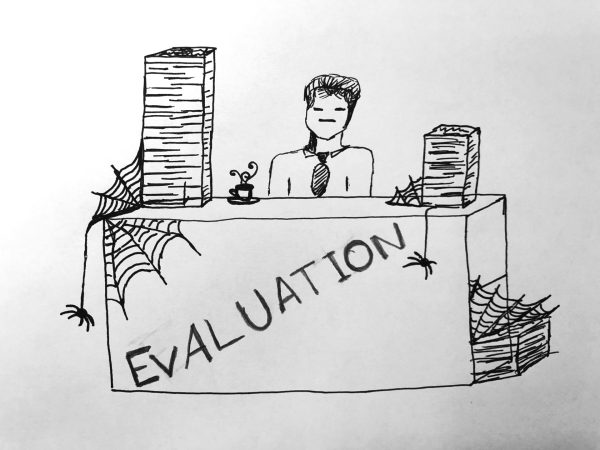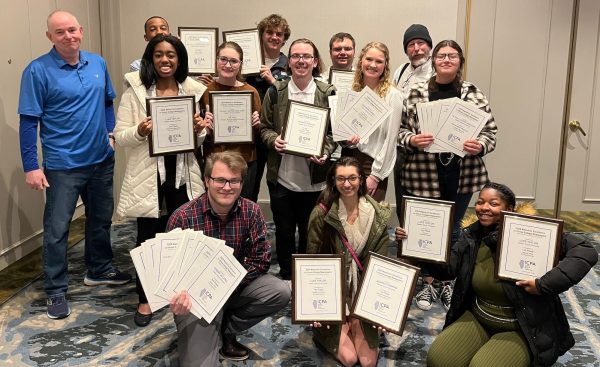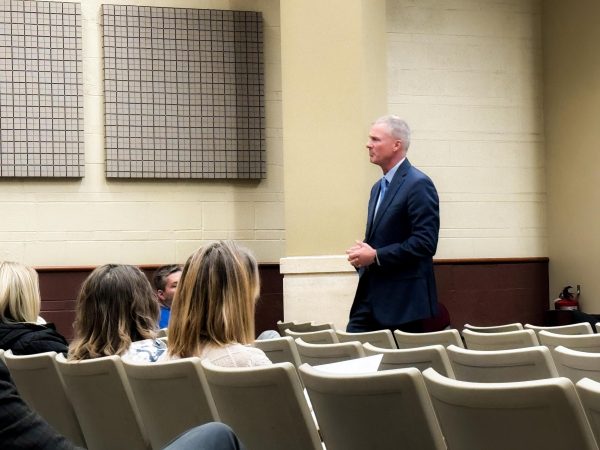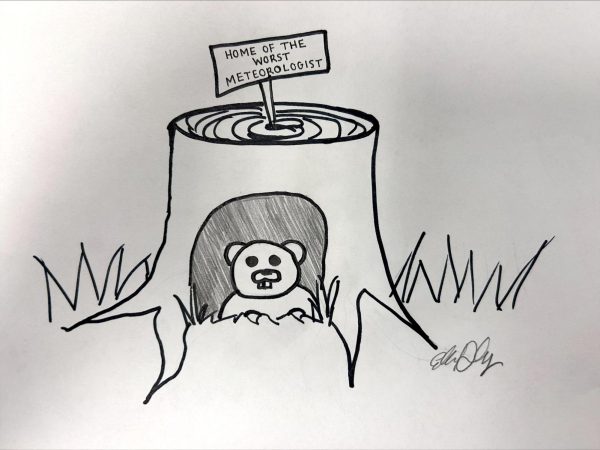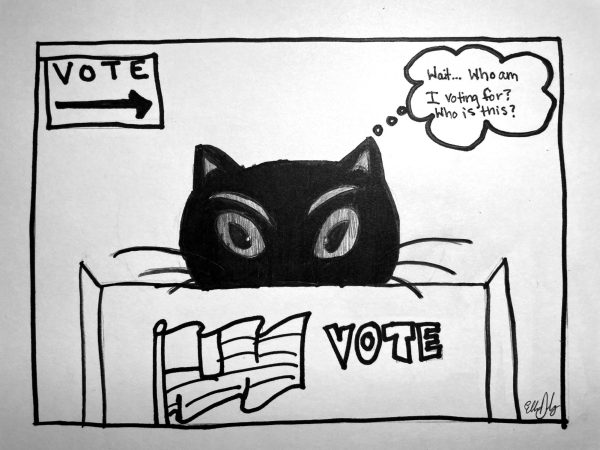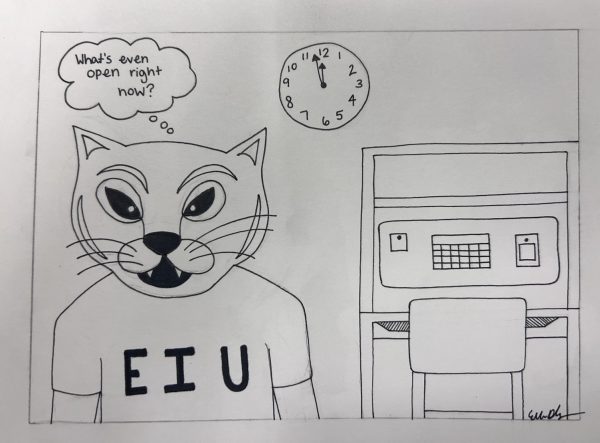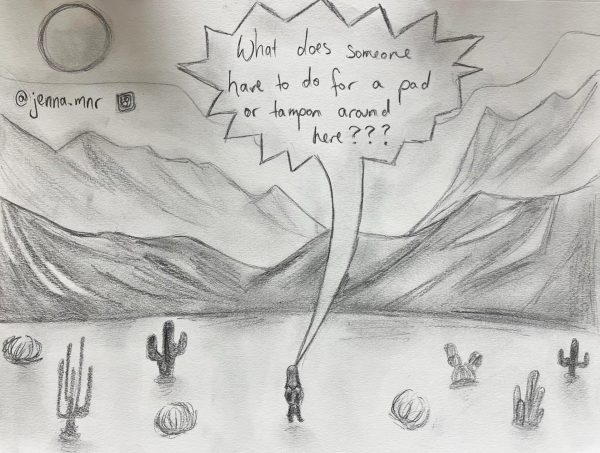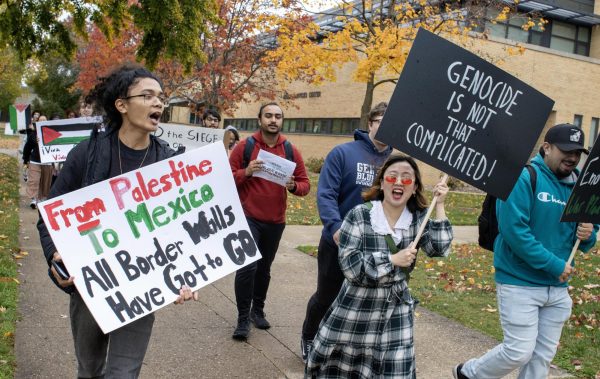Eastern’s president should be chosen carefully
February 2, 2015
Keeping the university’s low-enrollment and marketing strategy in mind, the future of Eastern as a four-year-institution relies upon a leader that is method-minded and accomplished at putting plans into action.
The four finalists for Eastern’s next president concluded their public interviews Wednesday.
Looking forward, the university will chose the candidate they feel will best lead and represent the Eastern community.
Throughout each interview the Eastern and Charleston community expressed the importance of a strong president who is capable of balancing athletics with academics, encouraging international enrollment, cultivating a community accepting of diversity, and above all increasing enrollment.
Each candidate offered a unique perspective to tackle each issue from.
Margaret Madden, the first of the candidates to visit campus, focused predominately on how her experiences at the University of Potsdam would guide her work at Eastern. Specifically, Madden said she would focus on the public relations aspects of presidency, appealing to the state for more funding and possibly creating community groups to address racism.
David Glassman spoke of specific ways to address enrollment, such as expanding opportunities for international students, offering variety in the delivery methods of the curriculum and catering to the growing population of Latino students.
He stressed the importance of a diverse faculty and administration to student success as well, and he explained his goal of bringing revenue to Eastern for scholarships and new buildings.
Sam Minner discussed the declining enrollment and how to work on promoting competitive advantages and “improving academic outcomes.”
Minner emphasized that enrollment is vital to revenue, and that both need to increase, noting that his team at Radford University increased minority enrollment by 81 percent and first generation student enrollment by 40 percent.
He also mentioned specific actions he has taken to give underrepresented groups opportunities for education and leadership.
Guiyou Huang emphasized the importance of the internationalization of the student body, as well as a strategic branding plan in order to increase enrollment.
He spoke of how important diversity on campus is to him, citing his experience studying English as an international student in the United States, and that a campus should reflect the national demographics.
Another topic Huang iterated was that keeping up with technology was crucial to preparing students; he also repeated that enrollment and marketing teams should be aggressive.
Specifically, Eastern would benefit from a president with a detailed action plan regarding the university’s low enrollment.
Just as enrollment numbers are important to the university’s success, so is a commitment to the inclusion of all persons – an obstacle Charleston has struggled to overcome thus far.
Guiyou Huang said that in order to ease tensions and create a more accepting environment, he would plan to introduce a series of diversity lectures, programs to attract minority faculty, and racial discrimination workshops.
Sam Minner said to improve the minority enrollment at Eastern, he would look at what the university is doing to retain certain populations, citing the growing number of Hispanic students as an example.
David Glassman said he would address whether or not Eastern’s recruiters can speak Spanish and cater to different population’s needs.
Margaret Madden said she has experience with diversity issues based on her psychology research in gender and race, and cited hiring incentives for minority faculty used at her previous institution.
To thrive, Eastern needs an administration that is willing to work cohesively with its faculty, staff and students, but also with one another.
Regardless of which candidate is chosen as President Bill Perry’s successor, special task forces and focus groups need free-flowing communication with one another on all levels if they expect their plans to be put into action. It is also up to the Charleston and university community to hold the new president accountable of the promises they made us throughout the last two weeks. It is imperative that these promises immediately transform into plans and shortly after into practices if they should ever become results.
The daily editorial is the majority opinion of the editorial board of The Daily Eastern News.




































